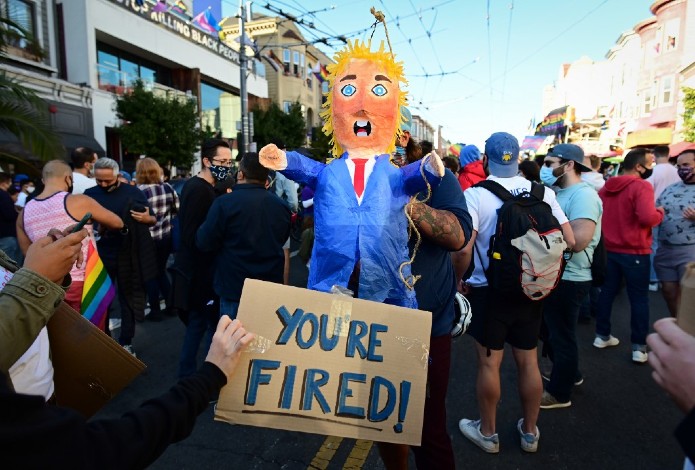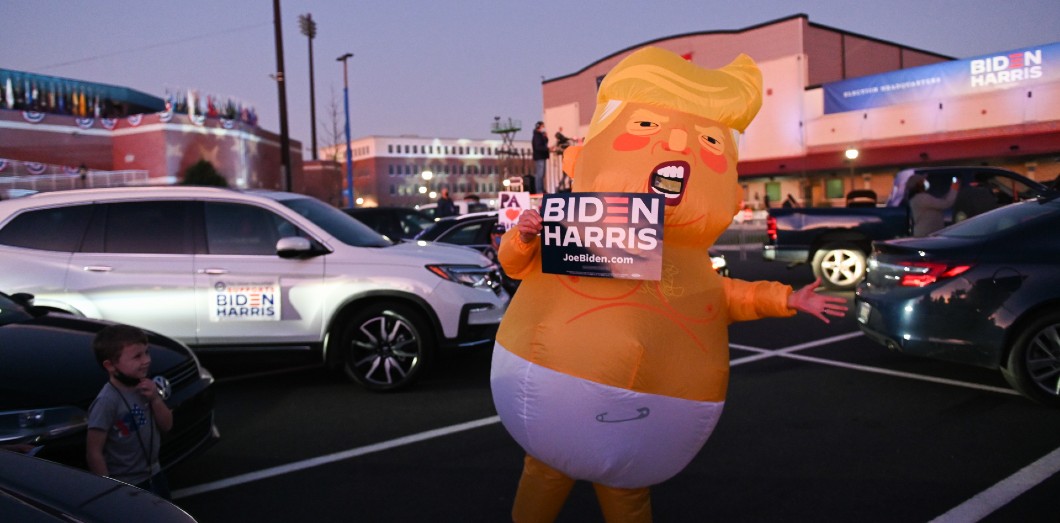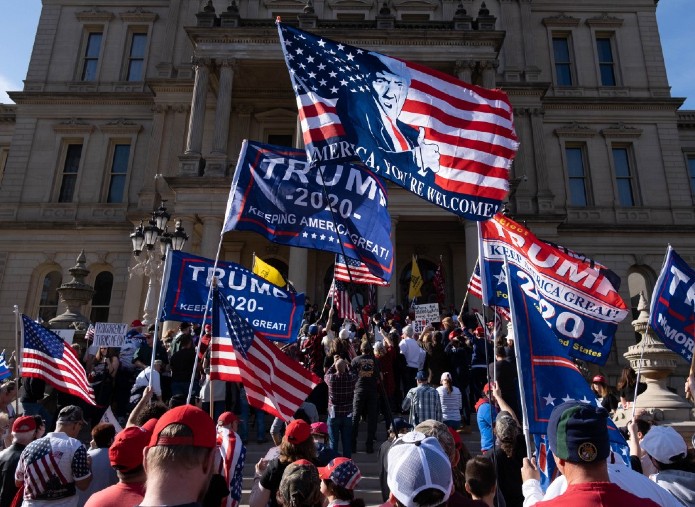More On: Joe Biden
Through the U.S. Ambassador, Hunter Biden and his associates tried to get money from the Irish in 2011
The raid on Donald Trump's Mar-a-Lago involved Joe Biden's White House
As Hurricane Ian approaches Florida, Biden and DeSantis finally talk
Lawyer for Hunter Biden's 'sugar brother' is said to have spied on the set of 'My Son Hunter'
Hunter Biden seemed to beg a drug dealer in Maryland to send drugs to a LA hotel
Political polarization is not about to recede and the presidential election is yet another example.
The US presidential election confirms that the United States is a typical democracy today. That is to say a country torn apart politically.
Deep political divisions plague most democracies today. They become so extreme that many citizens define their political identity as opposed to the “other camp”. There is now a deep, automatic intolerance, which has become the norm, towards people who display opposing political convictions. Often the antagonisms and animosity are such that the adversaries are not even considered as legitimate political actors. Also, the more polarized a country, the more difficult it is to govern it.

We have often been able to nourish the hope that an election leading to the victory of a party could calm political storms. But it is on condition that the electorate grants it a large majority, thus giving it a clear mandate to govern.
Instead of serving to ease tensions and unite the country, elections now play into the game of radicalization.
Unfortunately, this is less and less the case. Instead of bridging the political divide, election campaigns exacerbate it. Instead of serving to ease tensions and unite the country, elections now play into the game of radicalization.
From Spain to Nigeria, via Indonesia
Elections also quantify the political divide that divides a society, revealing the exact number of citizens who support any given side. Polarized democracies are faced with a three-fold most difficult task: forming governments, maintaining the alliances they have cobbled together to govern and making political decisions as essential as they are controversial.
This political reality has become globalized. Very recently we have seen the disastrous consequences of polarization in Spain, Italy, United Kingdom, Greece, Israel, Poland, Brazil, Peru, Chile, Indonesia, Malaysia, South Africa. South, in Nigeria and Tunisia. Among others.
The US election is just the latest example of this crippling political disease.
These are all countries whose society seems to be suffering from an autoimmune disease, because within the same political body, one party devotes colossal resources to fighting the other party.
Not that polarization is a new phenomenon. No, it has always existed since the clash of ideas is intrinsically part of democracy. What has changed is the generalization, the degree of rooting and the intensity of the phenomenon. The chronic political dysfunctions and paralyzes that nations may experience are commonplace.
The presidential election which has just taken place in the United States is only the latest - and perhaps the most revealing - example of this crippling political disease.
The various origins of this fragmentation
To what does this fragmentation of societies into disparate groups that can no longer be supported? Growing economic instability and a feeling of widespread injustice undoubtedly have something to do with this. There is also the rise of social media, as well as the crisis in journalism and traditional media.

Twitter or Instagram, for example, are communication systems designed for posting concise messages. However, such brevity favors extremism, because the shorter the message, the more radical it must be to be disseminated widely.
Social networks leave no room for nuance. Their frantic pace does not allow ambivalence, precision or the possibility, for those and those whose opinions are contradictory, to find common ground. Everything is either black or white. This therefore promotes sectarian tendencies and removes the prospect of any consensus.
But polarization doesn't just come from resentment over economic hardship or aggression spurred by social media. The anti-political movement - which rejects traditional politics and its leaders altogether - is an important factor. Parties now have a plethora of new competitors ('movements', 'waves' and other 'factions', as well as NGOs) whose agendas are based on rejecting the past and on tactics that encourage intransigence. .

The irony is that to win at the ballot box, traditional political parties today must take positions dictated by anti-politicians.
Donald Trump is an example as emblematic as it is paradoxical of this phenomenon. Belonging to the richest elite on the planet, he made his fortune by manipulating the system, and succeeded in becoming the leader of the “left behind” of the same system.
Identity above all
Another factor of polarization: identity. The feeling of belonging to a political group whose members identify with their co-members has become decisive. It doesn't matter whether that identity is religious, ethnic, regional, linguistic, sexual, generational, rural, urban and so on. It is assumed that the common identity of the members of a political group is at the origin of similar interests and preferences.
Radicalism and polarization often go hand in hand.
The character of identity, which is more permanent and less fluid than that of "normal" political positions, makes it more difficult for these political movements to make concessions on issues that affect the identity of their members. This makes them more rigid, since radicalism and polarization often go hand in hand.
As we know, there are also foreign actors, often sponsored by governments, who specialize in the instrumentalization of social networks in order to exploit and deepen the existing divisions in a given country. They thus create new divisions and sow chaos.
Sadly, political polarization is not going to subside anytime soon: many of its causes are powerful and relentless. Thus, the recent US presidential election is the latest example of the weakening of the world's democracies because of these terrible cleavages.






















